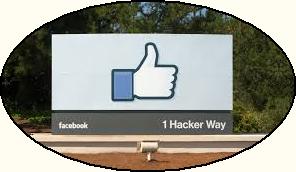Spadina Literary Review — edition 9 page 17
review
Valley of the Übermenschen
The Internet is Not the Answer
by Andrew Keen
Atlantic Monthly Press; ISBN 978-0-8021-2313-8;
eISBN 978-0-8021-9231-8
reviewed by Gifford T. Rollins
Gazing at the title of Andrew Keen’s latest anti-internet jeremiad, you will naturally wonder: what is the question that the internet is not the answer to?
Well, apparently while Keen was assembling this book he dropped in on one of those insufferable Silicon Valley confabs where the Asberger crowd, self-hyped-up about its “social mission,” was inquiring of itself: how can we make the world a better place? Their answers, says Keen, inevitably amounted to: more internet!

Gotta have more
More internet, and more, till everyone on earth is endlessly tweeting and posting and having their say and instagramming and taskrabbiting and, simultaneously, overthrowing their tyrants and generally having a blast.
“All the powerful, wealthy participants assumed that their self-interest in transforming the Web into a platform for user-generated content automatically squared with the general interest of everybody else in the world. They had appointed themselves as the emancipators of the people. Irrespective of the question, the internet was always the answer,” says Keen.
The "internet elite" love user-generated content because they get it for free and, as we shall see, free is a key word. Free is a concept that, paradoxically, has transformed some otherwise ordinary people into multi-billionaires.
Keen, for his part, believes we are the victims, not the beneficiaries, of the internet.
It goes almost without saying that the internet truncates our attention spans, fosters a selfie culture, generates untold volumes of gossip and cruelty, and destroys our expectations of privacy. We know that much. I should add that Vladimir Putin says the internet is 50% pornography, a figure presumably based on intensive KGB research. For Andrew Keen, however, the main focus is that the internet is an economic disaster, wiping out jobs like they're going out of style. Rather than providing an answer, says Keen, the internet has become the central question of the early 21st century.
Look at retail. Bookstores have been dropping like flies since amazon.com started in the mid-90s. Record stores have mostly disappeared too. Unlike real stores, a website can stock all the music in the world. Spotify.com offers you over 20 million songs. Twenty million! You could not live that long. Other retail categories such as videos and office supplies have likewise shrivelled for internet-related reasons. Practically nothing left but bars and tattoo parlors pretty soon.